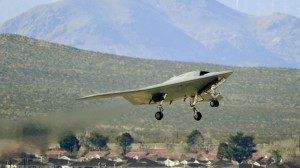It’s easy to be overwhelmed by bad news and lose hope for the future. In this fascinating and inspiring TED talk, Peter Diamandis makes a compelling case for a bright future fueled by technology, do-it-yourself ingenuity, and a global network of people working together to bring about profound change. Is he right?
http://www.ted.com/talks/lang/en/peter_diamandis_abundance_is_our_future.html
Category: 10.5 Human Questions for a Computer Age
npr.org/2012/03/12/148293470/drones-over-america-what-can-they-see
Computer-piloted drones have become part of life—and death—in war zones. But , according to John Villasenor, we’ll soon be seeing drones in American skies performing non-military tasks. As he explains in this NPR Fresh Air interview, a flurry of ethical, social, legal, and political questions will arrive with those drones.
After decades of technological advances, the Digital Divide is still with us. A lack of competition and other factors keep Internet access expensive for most of us and completely out of reach for many poor people. The cost of a lack of Internet access is staggering. Non-computer users can’t even apply for jobs at Walmart or Target. And, by the way, they can’t read this Huffington Post article, which shines a bright light on this dark corner of our Internet Age.
http://www.huffingtonpost.com/2012/03/01/internet-access-digital-age_n_1285423.html?utm_campaign=030112&utm_medium=email&utm_source=Alert-technology&utm_content=FullStory
One of the biggest tech trends isn’t a new gadget or tool; it’s a relatively new way of using gadgets and tools as agents of change. This article in CBC News explains why and how “hacktivism” is becoming an important—and potent—force in our world.
http://www.cbc.ca/news/technology/story/2012/02/06/hacktivism-.html
After seeing some mysterious photos someone found on a brand new iPhone, comedian Mike Daisey travelled to China to find out where and how our digital gadgets are made. He tells his story (EDIT: his “story” was later found out to be just that, a story) in this episode of public radio’s This American Life.
www.thisamericanlife.org/radio-archives/episode/454/mr-daisey-and-the-apple-factory
The world of programming is dominated by males and money. But there’s a movement afoot to change the gender balance and, at the same time, the factors that motivate programmers.
This Fast Company article describes Hampton Hackathon for Humanity, a gathering of young female programmers intent on making the world a better place.
Facebook, Twitter, and other social media are overflowing with stories of real people living real lives. Or are they? This thought-provoking article by Paul Ford takes a hard look at what’s missing in the stories people tell through social media. This is one of the best pieces we’ve seen on the changing roles of social media and traditional journalism.
The Internet is a marvelous medium for free-flowing discussion and information sharing. But it can also be an amplifier of hatred and rage—especially on sites where opinions can be posted anonymously.
What happens to your online identity after you die? This short TED talk explores this question and suggests some answers.
